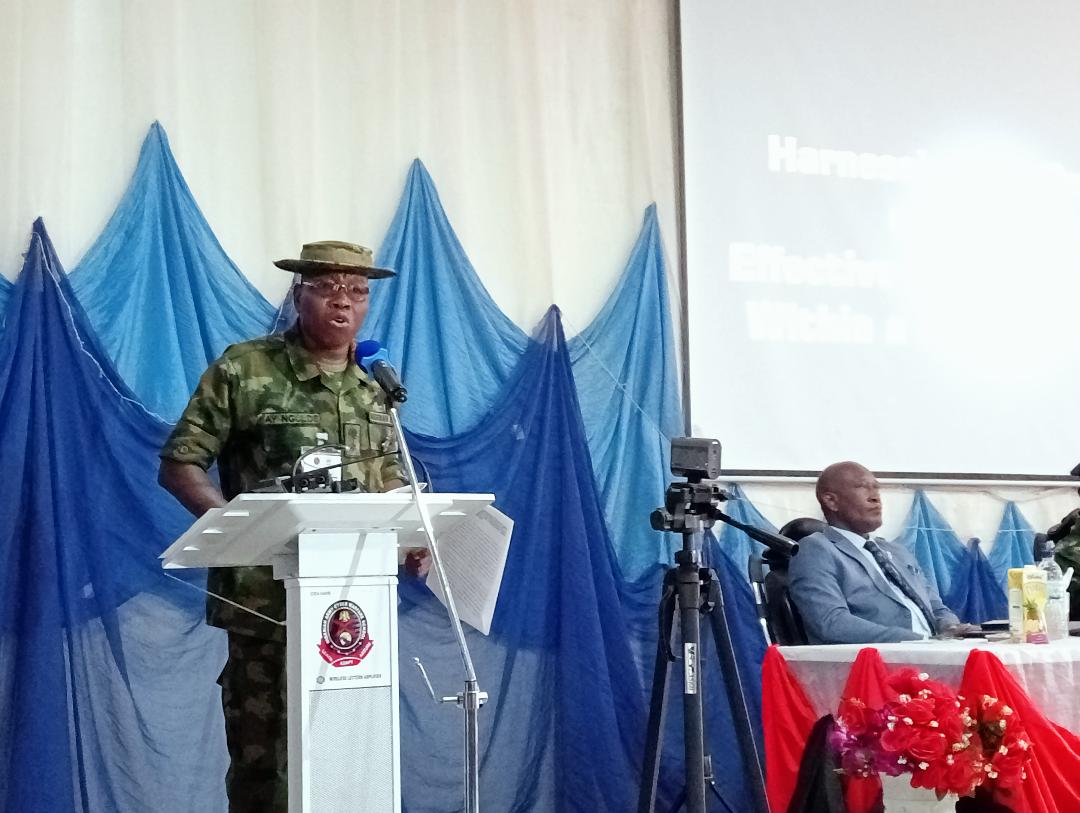Tag Archive for: nigeria
Criminals attack manufacturers with ransomware | The Guardian Nigeria News
/in Internet Security
Cybersecurity firm, Sophos, has revealed in its new sectoral survey report, ‘The State of Ransomware in Manufacturing and Production 2023’, that in more than two-thirds (68 per cent) of ransomware attacks against this sector, the adversaries successfully encrypted data.
Sophos described this as the highest reported encryption rate for the sector over the past three years and is in line with a broader cross-sector trend of attackers more frequently succeeding in encrypting data.
The report however, said in contrast to other sectors, the percentage of manufacturing organisations that used backups to recover data has increased, with 73 per cent of the manufacturing firms surveyed using backups this year versus 58 per cent in the previous year. It said despite this increase, the sector still has one of the lowest data recovery rates.
Field Chief Technical Officer, Sophos, John Shier, said: “Using backups as a primary recovery mechanism is encouraging since the use of backups promotes faster recovery. While ransom payments cannot always be avoided, we know from our survey response data that paying a ransom doubles the costs of recovery.
“With 77 per cent of manufacturing organizations reporting lost revenue after a ransomware attack, this added cost burden should be avoided, and priority placed on earlier detection and response.”
In addition, the report found that despite the growing use of backups, manufacturing and production reported longer recovery times this year. In 2022, 67 per cent of manufacturing organizations recovered within a week, while 33 per cent recovered in more than a week. This past year, only 55 per cent of manufacturing organisations surveyed recovered within a week.
“Longer recovery times in manufacturing are a concerning development. As we’ve seen in Sophos’ Active Adversary reports, based on incident response cases, the manufacturing sector is consistently at the top of organizations needing assistance recovering from attacks.
This extended recovery is negatively impacting IT teams, where 69 per cent report that addressing security incidents is consuming too much time and 66 per cent are unable to work on other projects,” the report…
Nigeria ranked as Africa’s second most cyber-secure country after Senegal
/in Internet Security
Nigeria has been ranked as the second most secure African country in Africa, behind Senegal. This was revealed in a report by India-based cybersecurity research firm, Indusface, as reported by TechCrunch. The West African country earned the spot after it successfully halted the Gamarue botnet- a very dangerous malware that had been a significant threat to corporate data and devices.
The cybersecurity rankings were determined using metrics like DDOS attacks, phishing and malware-hosting sites. Nigeria ranked second with an overall index of 74.69 out of 100. Senegal ranked as the continent’s most-secure country after amassing 78.09 points.
The research claims Nigeria has a low number of compromised systems per 100,000 internet users among other African nations evaluated. This yardstick acknowledges Nigeria’s successful advances to counter malware like the Gamarue botnet which primarily steals information, and performs other activities such as click fraud.
Honduras, South Korea, and Japan emerged as the top three cyber-secure nations, respectively, according to the report.

The Founder and President of Indusface, Venky Sundar, emphasized the need of addressing the security issues connected with remote work in the dynamic business environment. He provided individuals and organisations with six crucial pointers for boosting their cyber security in virtual office settings.
These include: determining which nations are least likely to be attacked by cybercriminals; comprehending data security laws like the GDPR; evaluating law enforcement resources; looking into government grants for cybersecurity; and analyzing cybersecurity knowledge among various age groups.
The investigation by the South San Francisco-based firm further discloses that 68% of high-growth global companies are capitalizing on hybrid work because of cost reduction, flexibility and recognition across the wider talent market. The adoption of these models by global companies is said to curb the lingering threats in preserving data privacy and network security outside the workspace.
Read More; Top cybersecurity predictions for African businesses in 2023, according…
Tinubu and Nigerian Army’s glorious era – The Sun Nigeria
/in Internet Security
It is becoming all too glaring that President Bola Tinubu is determined to turn around the fortunes of the Nigerian military for the better, in particular its most dominant force, the Nigerian Army.
In doing so, however, he must take copious notes from the different periods that can be termed as the Nigerian Army’s glorious eras. The President should disregard the naysayers and pay full regard to physical achievements that have helped in shaping the army to the strong institution it has become today.
According to defence.gov.ng, “the history of the Nigerian Army dates to 1863, when Lt. Glover of the Royal Navy selected 18 indigenes from the northern part of the country and organized them into a local force, known as the ‘Glover Hausas’. The small force was used by Glover as governor of Lagos to mount punitive expedition in the Lagos hinterland and to protect British trade routes around Lagos. In 1865, the ‘Glover Hausa’ became a regular force with the name ‘Hausa Constabulary’. It performed both police and military duties for the Lagos colonial government. It later became ‘Lagos Constabulary’.
“On incorporation into the West Africa Frontier Force (WAFF) in 1901, it became ‘Lagos Battalion’. In addition to this force, the British government included the Royal Niger Company (RNC) Constabulary Force in Northern Nigeria.”
But narrowing this down to our contemporary history as a nation, no matter what anyone might say, the reality is that the era when General Tukur Yusufu Buratai held sway as Army Chief is the most glorious, given the unprecedented challenges of the time and the achievements made.
A well-researched piece published by ireporteronline.com, entitled “Promoting Professionalism: Major Reorganization and Modernization Under General Buratai’s Tenure,” captures that era as follows:
Preceding his appointment as the Chief of Army Staff by former President Muhammadu Buhari in 2015, the military was losing its officers and men in large numbers. Thus, Buratai’s drive was to improve on the military’s operational achievementsWithin three months of his appointment, Buratai verified his leadership capability by…



